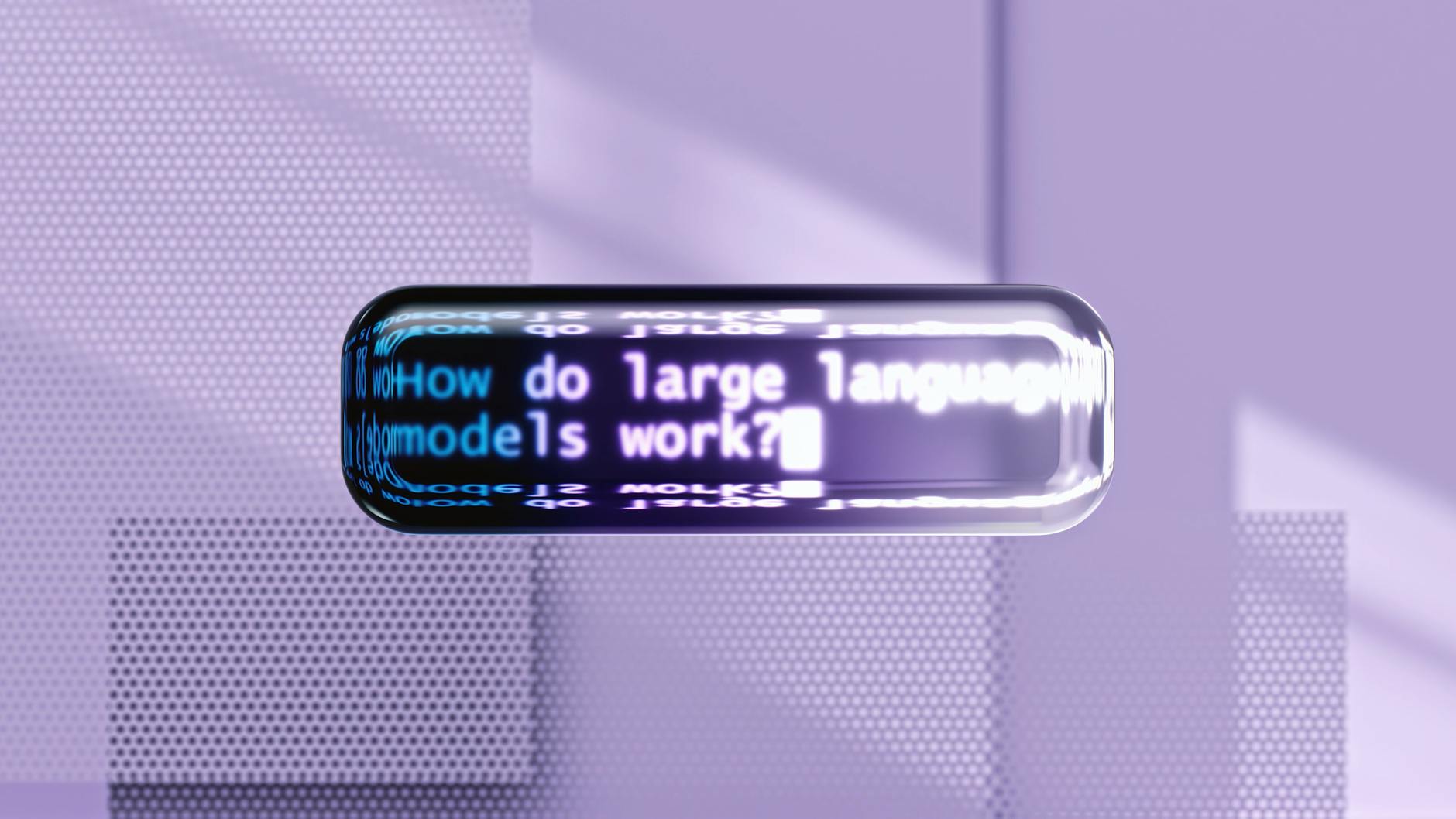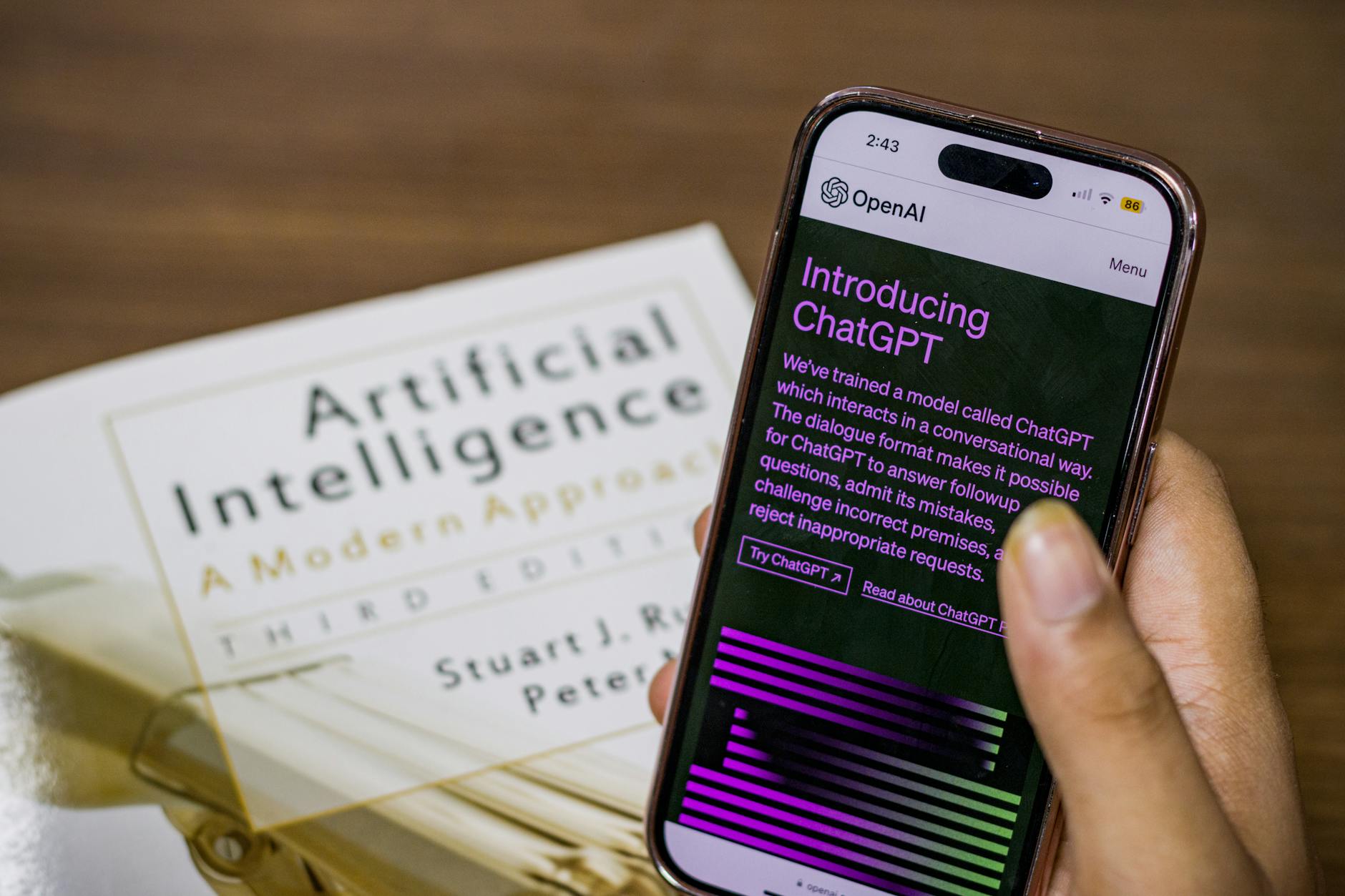
🤖 Imagine a world where your home anticipates your needs, your car drives itself, and a doctor’s visit is as simple as talking to your smartphone. Sound like science fiction? Think again. The future of AI (Artificial Intelligence) is not just coming—it’s already here, and it’s about to revolutionize every aspect of our lives.
From the way we communicate to how we learn, travel, and take care of our health, AI innovations are set to transform our daily experiences in ways we’ve only dreamed of. But what exactly are these game-changing technologies, and how will they impact you? In this post, we’ll explore five groundbreaking AI innovations that are poised to reshape our world, making life easier, safer, and more efficient than ever before. Get ready to peek into a future where the line between science fiction and reality blurs, and where AI becomes an indispensable part of our everyday lives.

Natural Language Processing Breakthroughs
Natural Language Processing (NLP) is at the forefront of AI innovations, promising to revolutionize how we interact with machines. Let’s explore the groundbreaking advancements in this field.
Human-like conversations with AI
AI-powered chatbots and virtual assistants are becoming increasingly sophisticated, engaging in more natural and context-aware conversations. These systems can now:
- Understand and respond to complex queries
- Maintain context throughout a conversation
- Adapt their communication style to individual users
Emotional intelligence in AI interactions
The next frontier in NLP is the integration of emotional intelligence, allowing AI to:
- Recognize human emotions through text and voice analysis
- Respond with appropriate empathy and sensitivity
- Adjust its tone and language based on the user’s emotional state
Automated content creation
AI-driven content generation is transforming various industries:
- Journalism: Producing news articles and reports
- Marketing: Creating personalized ad copy and social media posts
- Entertainment: Generating scripts and storylines
Real-time language translation
Advanced NLP is breaking down language barriers through:
| Feature | Benefit |
|---|---|
| Instant translation | Enables seamless global communication |
| Context-aware translations | Preserves cultural nuances and idioms |
| Multi-modal translation | Translates text, speech, and even sign language |
These breakthroughs in NLP are paving the way for more intuitive and efficient human-AI interactions. Next, we’ll explore how AI is revolutionizing healthcare, bringing unprecedented advancements in diagnosis and treatment.

Advanced Healthcare AI
As we delve into the realm of healthcare, it’s clear that AI is poised to revolutionize the way we approach patient care and medical treatments. From mental health support to surgical precision, AI is making significant strides in improving healthcare outcomes.
Mental Health Support Chatbots
AI-powered chatbots are emerging as valuable tools in mental health support. These digital companions offer:
- 24/7 availability for immediate support
- Personalized conversations based on user input
- Early detection of potential mental health issues
While not replacing human therapists, these chatbots serve as a first line of support, especially in areas with limited access to mental health professionals.
AI-Assisted Surgeries
The integration of AI in surgical procedures is enhancing precision and reducing risks. AI assistance in surgeries provides:
- Real-time analysis of surgical images
- Guidance for robotic surgical systems
- Predictive analytics for potential complications
| Traditional Surgery | AI-Assisted Surgery |
|---|---|
| Limited visual data | Enhanced imaging and analysis |
| Manual precision | Robotic precision guided by AI |
| Reliance on surgeon’s experience | Augmented decision-making with AI insights |
Early Disease Detection
AI algorithms are revolutionizing early disease detection through:
- Analysis of medical imaging (X-rays, MRIs, CT scans)
- Pattern recognition in patient data
- Predictive modeling for disease progression
This early detection capability is particularly promising for conditions like cancer, where early intervention can significantly improve outcomes.
Personalized Treatment Plans
AI is enabling the creation of highly personalized treatment plans by:
- Analyzing vast amounts of patient data
- Considering genetic factors and lifestyle information
- Predicting treatment efficacy based on similar case histories
These tailored approaches are increasing treatment success rates and reducing adverse effects, marking a new era in patient-centric care.
As we look towards the future, the integration of AI in healthcare promises not only to enhance medical capabilities but also to make quality healthcare more accessible and personalized for everyone.

Autonomous Vehicles Revolution
The autonomous vehicles revolution is set to transform our roads and transportation systems, bringing about significant changes in safety, environmental impact, and daily commutes. Let’s explore the key aspects of this exciting development.
A. Reduced accidents and improved safety
AI-powered autonomous vehicles have the potential to dramatically reduce road accidents and improve safety for all road users. Here’s how:
- Advanced sensors and algorithms detect obstacles and predict potential hazards
- Elimination of human error, which accounts for over 90% of road accidents
- Consistent adherence to traffic rules and speed limits
- Improved reaction times compared to human drivers
B. Environmental benefits of optimized transportation
The adoption of autonomous vehicles can lead to substantial environmental benefits:
| Benefit | Description |
|---|---|
| Reduced emissions | Optimized routing and driving patterns lead to lower fuel consumption |
| Less congestion | Efficient traffic flow reduces idle time and overall emissions |
| Shared mobility | Increased use of autonomous ride-sharing services reduces the number of vehicles on the road |
C. AI-powered traffic management
Autonomous vehicles will work in tandem with AI-powered traffic management systems to:
- Optimize traffic flow in real-time
- Reduce congestion and travel times
- Improve emergency vehicle response times
- Enhance overall urban mobility
D. Self-driving cars for everyday use
As the technology matures, self-driving cars will become increasingly accessible for everyday use:
- Increased mobility for elderly and disabled individuals
- Productive commutes: work or relax while traveling
- Reduced stress and fatigue associated with driving
- Lower transportation costs through shared autonomous vehicle services
The autonomous vehicles revolution is poised to reshape our transportation landscape, offering safer, more efficient, and environmentally friendly mobility options. As we move forward, the integration of AI in vehicles will continue to evolve, bringing us closer to a future where autonomous transportation is the norm rather than the exception.

AI in Education and Learning
Now that we’ve explored how AI is revolutionizing transportation, let’s delve into its transformative impact on education and learning.
Virtual Reality Educational Environments
Virtual reality (VR) is taking education to new heights, offering immersive learning experiences that were once unimaginable. These environments allow students to:
- Explore historical sites in 3D
- Conduct virtual science experiments
- Practice language skills in simulated real-world scenarios
Automated Grading and Feedback
AI-powered automated grading systems are streamlining the assessment process, providing:
- Instant feedback to students
- Reduced workload for educators
- More consistent evaluation across large groups
Intelligent Tutoring Systems
Intelligent tutoring systems are revolutionizing one-on-one learning support:
- Adapting to individual student needs
- Providing 24/7 availability
- Offering personalized explanations and practice problems
Personalized Learning Experiences
AI is enabling truly personalized education, tailoring content and pacing to each student’s unique needs:
| Traditional Learning | AI-Powered Learning |
|---|---|
| One-size-fits-all approach | Customized learning paths |
| Fixed curriculum | Adaptive content |
| Standardized assessments | Continuous, personalized evaluation |
These AI-driven innovations are not only enhancing the quality of education but also making it more accessible and engaging for learners of all ages and backgrounds. As we continue to harness the power of AI in education, we can expect even more groundbreaking developments that will shape the future of learning.

AI-Powered Smart Homes
As we look towards the future of AI, one of the most exciting areas of innovation is the realm of smart homes. These AI-powered living spaces are set to revolutionize our daily lives, offering unprecedented levels of convenience, efficiency, and personalization.
AI-assisted meal planning and grocery management
AI is transforming the way we approach meal planning and grocery shopping. Smart refrigerators can now:
- Track inventory and expiration dates
- Suggest recipes based on available ingredients
- Automatically generate shopping lists
| Feature | Benefit |
|---|---|
| Inventory tracking | Reduces food waste |
| Recipe suggestions | Inspires culinary creativity |
| Automated shopping lists | Saves time and ensures essentials are never forgotten |
Voice-controlled home automation
Voice assistants are becoming increasingly sophisticated, allowing for seamless control of various home systems:
- Lighting and temperature adjustments
- Entertainment system management
- Appliance operation
Personalized comfort settings
AI algorithms learn your preferences over time, creating a truly personalized living environment:
- Adaptive temperature control based on individual habits
- Customized lighting scenes for different activities
- Automatic adjustments for optimal sleep conditions
Advanced security systems
Smart home security is reaching new heights with AI integration:
- Facial recognition for enhanced access control
- Anomaly detection to identify potential threats
- Real-time alerts and remote monitoring capabilities
Predictive energy management
AI-powered smart homes are leading the charge in energy efficiency:
- Predictive algorithms optimize energy usage based on habits and weather forecasts
- Integration with smart grids for more efficient power distribution
- Automatic switching to renewable energy sources when available
As we move forward, these AI-powered innovations in smart homes will not only enhance our comfort and convenience but also contribute to a more sustainable and secure living environment.
Conclusion

The rapid advancements in artificial intelligence are poised to revolutionize various aspects of our daily lives. From natural language processing breakthroughs that will enhance communication to AI-driven healthcare innovations that could save countless lives, the future looks promising. The autonomous vehicle revolution will transform transportation, while AI in education will personalize learning experiences for students of all ages. Moreover, AI-powered smart homes will bring unprecedented levels of comfort and efficiency to our living spaces.
As we embrace these technological marvels, it’s crucial to stay informed and adaptable. The future of AI offers endless possibilities for improving our quality of life, but it also requires us to be mindful of potential challenges. By understanding and actively engaging with these innovations, we can harness the power of AI to create a brighter, more connected, and efficient world for generations to come.






I was recommended this blog by way of my cousin. I’m no longer sure whether or not this post is written by way of him as nobody else realize such distinct about my trouble. You are amazing! Thanks!
Thank you so much for your kind comment! We’re so glad to hear that your cousin recommended our blog and that you found the post helpful and relatable. It means a lot to know we could address your concern. Your support encourages us to keep sharing valuable content. Thanks again, and we hope you continue to enjoy our blog!